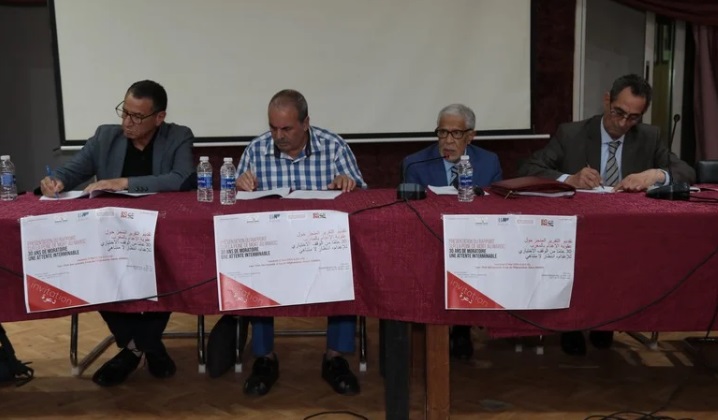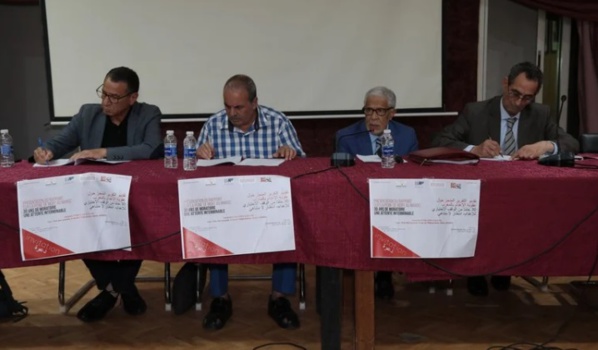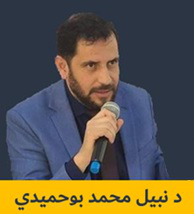NGOs have renewed their calls for the abolition of the death penalty improving the detention conditions of death row inmates, according to a recent report, released by the Moroccan Observatory of Prisons, the Moroccan Coalition for the Abolition of the Death Penalty, the Network of Women Lawyers and Lawyers Against the Death Penalty, and Together Against the Death Penalty (ECPM).
Despite a de facto moratorium on executions since 1993, Moroccan courts continue to sentence individuals to death, leaving those on death row in a state of anxiety and depression, according to a recent report.
Official figures show that as of December 2023, there were 63 people sentenced to death, including one woman. These inmates live with the constant fear of an execution that will never come, causing them severe psychological distress.
The report, based on field research and interviews with prisoners, found that those sentenced to death suffer from difficult detention conditions, with many housed in overcrowded cells and deprived of access to adequate healthcare and psychological support.
The report also highlighted that some of the trials that resulted in death sentences did not respect all the guarantees of a fair trial, and the defendants did not receive any legal assistance.
The report raises concerns about the quality of legal representation for death row inmates. It notes that most of those interviewed were represented by court-appointed lawyers provided through legal aid.
While this ensures that all defendants have legal representation, it raises questions about the expertise of these lawyers in handling capital punishment cases.
The report suggests that the financial constraints associated with hiring private lawyers may lead to a pool of court-appointed lawyers with limited experience in such complex and high-stakes cases.
This could potentially affect the defendants’ chances of a fair trial and adequate defense.
The report concludes with recommendations for various Moroccan stakeholders. It urged the government to abolish the death penalty entirely, including a formal commitment and a legal framework review that aligns with human rights standards.
The report called for fair trials and decent living conditions for death row inmates. This includes guaranteeing competent legal representation and improved living conditions that meet basic human rights standards.
The recommendations also addressed the judiciary. Judges are encouraged to apply existing time limits for those incarcerated over 15 years, and compensate those held beyond that limit.
Civil society organizations are called upon to support death row inmates, collaborate with the justice system, and mobilize stakeholders to push for the complete abolition of the death penalty in Morocco.
While Morocco’s courts continue to issue death sentences, the last execution took place in 1993. Authorities often commute death sentences to life imprisonment, but they retain the penalty in the legal arsenal and have not responded to calls for its abolition from human rights groups.
Despite a de facto moratorium on executions since 1993, Moroccan courts continue to sentence individuals to death, leaving those on death row in a state of anxiety and depression, according to a recent report.
Official figures show that as of December 2023, there were 63 people sentenced to death, including one woman. These inmates live with the constant fear of an execution that will never come, causing them severe psychological distress.
The report, based on field research and interviews with prisoners, found that those sentenced to death suffer from difficult detention conditions, with many housed in overcrowded cells and deprived of access to adequate healthcare and psychological support.
The report also highlighted that some of the trials that resulted in death sentences did not respect all the guarantees of a fair trial, and the defendants did not receive any legal assistance.
The report raises concerns about the quality of legal representation for death row inmates. It notes that most of those interviewed were represented by court-appointed lawyers provided through legal aid.
While this ensures that all defendants have legal representation, it raises questions about the expertise of these lawyers in handling capital punishment cases.
The report suggests that the financial constraints associated with hiring private lawyers may lead to a pool of court-appointed lawyers with limited experience in such complex and high-stakes cases.
This could potentially affect the defendants’ chances of a fair trial and adequate defense.
The report concludes with recommendations for various Moroccan stakeholders. It urged the government to abolish the death penalty entirely, including a formal commitment and a legal framework review that aligns with human rights standards.
The report called for fair trials and decent living conditions for death row inmates. This includes guaranteeing competent legal representation and improved living conditions that meet basic human rights standards.
The recommendations also addressed the judiciary. Judges are encouraged to apply existing time limits for those incarcerated over 15 years, and compensate those held beyond that limit.
Civil society organizations are called upon to support death row inmates, collaborate with the justice system, and mobilize stakeholders to push for the complete abolition of the death penalty in Morocco.
While Morocco’s courts continue to issue death sentences, the last execution took place in 1993. Authorities often commute death sentences to life imprisonment, but they retain the penalty in the legal arsenal and have not responded to calls for its abolition from human rights groups.



 الدكتوراه في قانون العقود والعقار ـ إشراف الدكتور إدريس الفاخوري
الدكتوراه في قانون العقود والعقار ـ إشراف الدكتور إدريس الفاخوري 













 NGOs call for the abolition of death penalty
NGOs call for the abolition of death penalty













